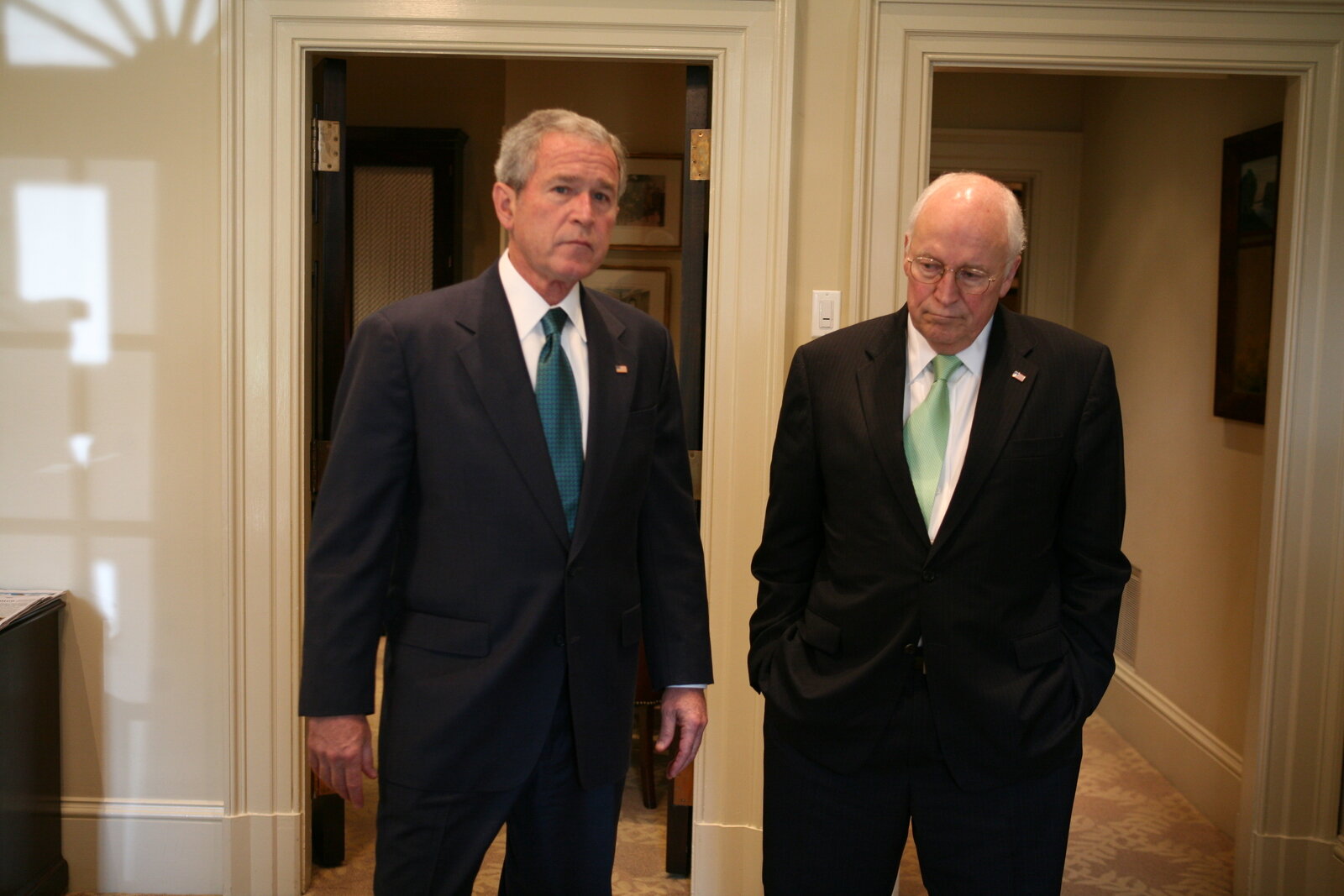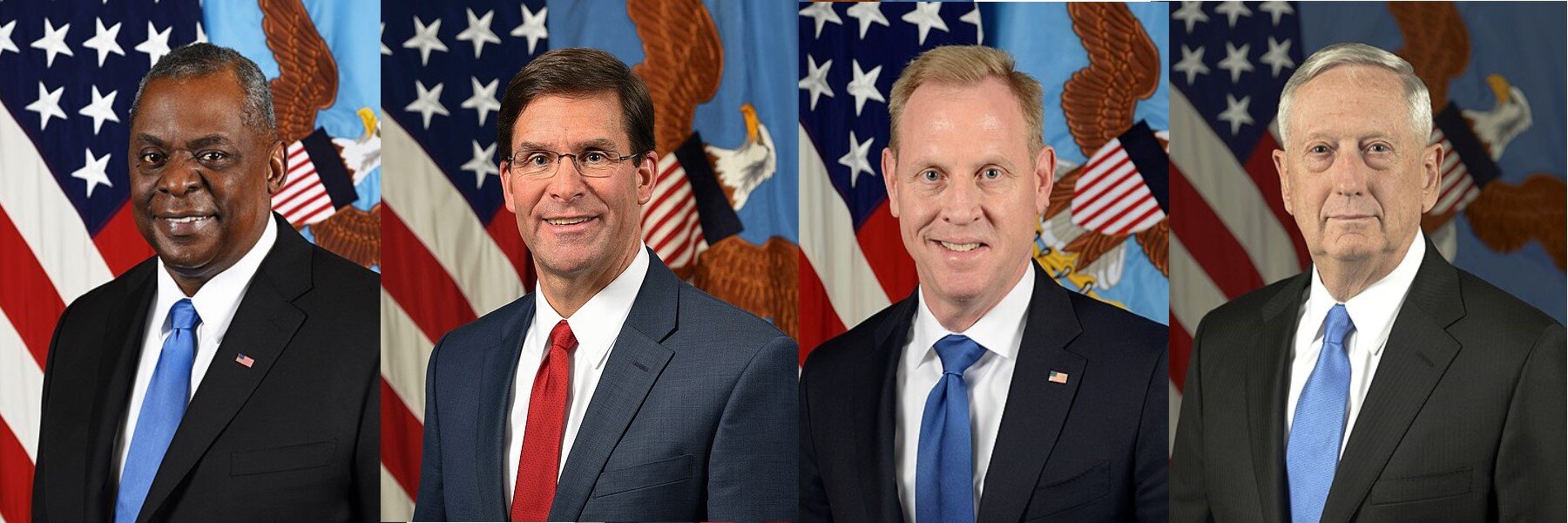PICTURED: The largest honey pot ever.
Story at a glance…
-
A Brown University report reveals that of the $14 trillion spent on the terror wars, a third has gone to military contractors.
-
The report outlines the terrible consequences of America’s “commercialization of defense”.
-
WaL details what this massive money making scheme has done to the civilian defense authorities, and the revolving door between the Pentagon and the Arms Manufactures.
The ever-perceptive Costs of War program at Brown University, conducted in part alongside the Center for International Policy, has recently-concluded an examination of the wealth accumulated by arms manufacturers since the start of the Global War on Terror.
They conclude that $14 trillion was spent by Congress since the start of the War in Afghanistan, with $4.4 trillion going to weapons acquisition and research and development from private firms. Of that amount $2.2 trillion was hoovered up by just five companies: Raytheon, Lockheed Martin, Boeing, Northrup Grumman, and General Dynamics.
To put that gargantuan sum into perspective, the report emphasizes that “$75 billion in Pentagon contracts received by Lockheed Martin in fiscal year 2020 is well over one and one-half times the entire budget for the State Department and Agency for International Development for that year, which was just $44 billion”.
These five companies received over $286 billion in contracts in Fiscal Year 2019 and Fiscal Year 2020 alone.
The last two major points the report makes, are the comparatively measly sums the arms industry needed to spend on lobbying to achieve such a massive pie slice, and the scale of fraud that arose from the moral hazard of bottomless pockets in the Pentagon linked to tight military deadlines.
Of that $4.4 trillion, the weapons manufacturers have been required to fork over just $2.5 billion in lobbying to get it, or one one-thousand seven-hundredth of what they earned as a result.
PICTURED: Bush Jr. and Cheney in the outer Oval Office. Cheney profited mightily, as well as his company Halliburton, from the Bush Jr. era wars in the Middle East.
The purse is now open
William Hartung, director of the Arms and Security Project at the Center for International Policy, and author of the report, included in it a quote from Harry Stonecipher, then Vice President of Boeing, who told The Wall Street Journal in October of 2001 that “the purse is now open,” and that “any member of Congress who doesn’t vote for the funds we need to defend this country will be looking for a new job after next November”.
But how did it come to pass that so many Wall Street-listed “private” firms are engaged in the furnishing of the world’s largest military? In a separate report from the Costs of War program from last year, Heidi Peltier notes that the commercialization of the U.S. military was sold as a way to make military spending cheaper and more efficient.
Yet Peltier disproves that theory soundly in her report on the “Camo Economy,” by pointing out that any traditional market structure that would create the conditions for lower prices are lacking in the defense industry. For her first example, Peltier notes what anyone would imagine from a government-enforced monopoly, that most of these companies lack any kind of commercial competition, thereby reducing pressure to keep costs and prices low.
And indeed they are monopolies. In 2019, 45% of all military contracts were non-competitive, while other kinds outside that fraction include sole-supplier contracts, and lifetime agreements.
This massive influx of cash distorts the national labor market by making it incredible difficult for domestic companies or the public military to compete for skilled engineers, for example, as Peltier notes that “military contractors are able to pay wages that range from 20 to 166 percent above the national average for such occupations”.
In short, it’s the largest honey pot in human history, and one which provides excellent insulation from the vicissitudes of life which other employers and employees must face.
PICTURED: Smoke rises at the site of the F-35 jet crash in Beaufort, South Carolina. PC: Sky News.
War profiteering
Returning to Hartung’s recent report, the Pentagon’s contracts budget is rife with evidence of everything from fraud to outright war profiteering. Among notable examples are former-Vice President Dick Cheney’s firm Halliburton and their subsidiary Kellogg, Brown and Root (KBR).
By 2008, after the denser warfighting years of the Bush Jr. administration, the pair of warzone construction and fulfillment firms had received $30 billion from the Pentagon. Less than a year into the Invasion of Iraq, KBR was found to have essentially charged double for fuel, amounting to tens of millions of taxpayer dollars.
KBR was put under scrutiny again in 2008 after a soldier was electrocuted to death from shoddy electrical work on a base in Iraq, but their contract did not require “fixing any potential hazards”.
Another similar case of fraud was found when between 2004-2008 when the International Oil Trading Company made $200 million in profits on $1.4 billion in oil sales to the Pentagon, all the while charging massively inflated prices.
Many of these crimes were discovered by Henry Waxman (D – CA), chair of the House Government Oversight and Reform Committee, or by SIGAR: The Special Investigator General for Afghan Reconstruction, but rarely did any such criminal firms or behaviors go punished.
One example is the firm Agility, which overcharged the U.S. Army for food deliveries to the Middle-East by $8.5 billion. They settled a suit by the DoJ by paying a micro-smidgeon of that to the U.S. Treasury.
Another famous example is Lockheed Martin’s F-35 fighter jet, which at one point looked as if it couldn’t turn correctly, couldn’t be repaired easily, and couldn’t fly if lightning was anywhere near the area, yet by 2014 it had already cost almost $400 billion to produce. Nevertheless, a report by Lockheed submitted to Congress said that 136,000 jobs in 46 states depended upon the F-35 program which was blatant inflation of the numbers, and could and probably should be considered a lie to Congress.
But rather than be held accountable for their continued lapping up of corporate welfare, the F-35 is finally starting to be sold to long-waiting clients like NATO allies and Israel. 37%, Hartung writes, of Lockheed Martin’s revenue now comes from international sales through its aeronautics division, of which the F-35 is no doubt contributing. Will Americans ever see that dividend themselves, for financing a $1.7 trillion program which is now making money only for war profiteers?
Trump mentioned when he blocked passage of a bill that would prevent the Saudis from buying weapons like the F-35 from America to use against the people of Yemen: “I don’t like the concept of stopping an investment of $110 billion into the United States”. The actual figure is considerably lower, but even still, the President admitted that American defense firms were essentially mercenaries that kill people for money.
PICTURED: From left to right: Sec. of Defense Lloyd Austin. Former-Secretaries of Defense Mark Esper, Patrick Shanahan, and James Mattis. Excluding two previous Defense Secretaries who served only a few days, these four have all entered the job having held senior positions in some of America’s largest arms manufacturers.
Bass parachutes and revolving doors
With over $4 trillion passing, since 9/11, to the largest arms contractors in the country, one might imagine there could be some law barring the revolving door that leads from Arlington Virginia, directly into the offices of Boeing, Raytheon, and all the rest, but with the White House and Congress having been changed many times over during that period, no such law has ever been passed.
Cheney was far from the last war profiteer to hold positions in both civilian government and military/defense industry.
Under Trump, a JCS Chair, General Joseph Dunford, left his position and immediately took one on the board of directors at Raytheon. James Mattis, Trump’s first Defense Sec., was board member of General Dynamics. Mattis’ successor Patrick Shanahan was a senior vice president at Boeing, and his successor, Mark Esper, was Raytheon’s chief lobbyist.
Another board member of Raytheon would take the seat (illegally) of Sec. of Defense under the Biden administration, as former-Gen. Lloyd Austin had not spent 7 years out of the service when he was appointed.
Frank Kendall, a former vice president at Raytheon, who served as Under Secretary of Defense for Acquisition, Technology, and Logistics for Obama, was made head of the Air Force at Biden’s nomination. He had made the bulk of his money consulting for Northrup Grumman. Heidi Shyu, the Under Secretary for Defense Research in Biden’s Pentagon as well as Obama’s, ran a consulting firm for which she helped Boeing, General Electric, Raytheon, and Northrop Grumman, and a pair of firms specializing in drone warfare.
It is incredibly disturbing for any country to spend so much on it’s military. For so much of it to funnel into so few companies, who are protected from market forces, and who siphon off so much of the private sector talent, never suffer punishment in the face numerous cases of illegal rent-seeking and price-gouging, and who seem to act as both the finishing school and retirement home of so many of the country’s most senior or formerly-senior military decision makers, is astonishing to behold.





